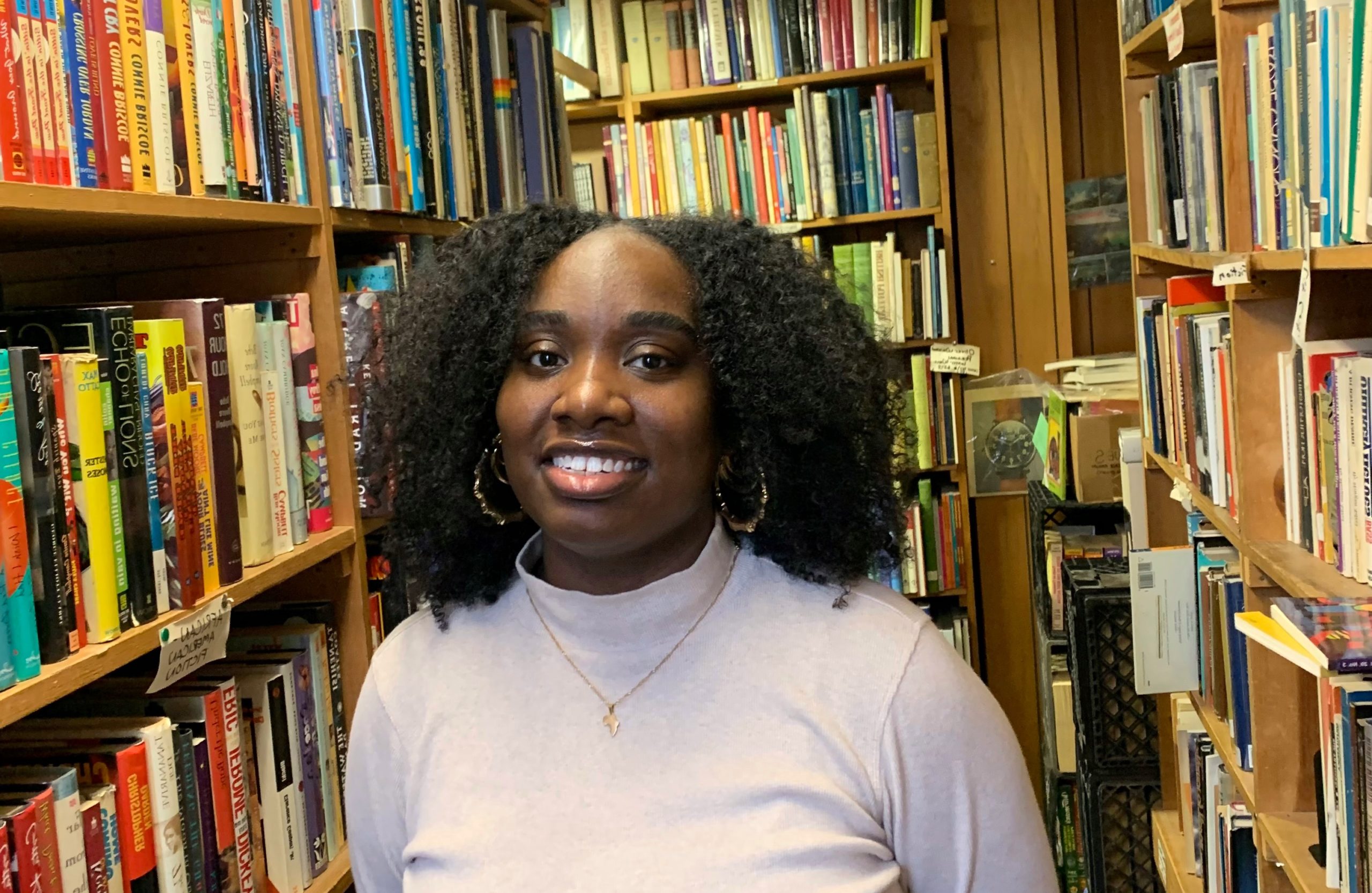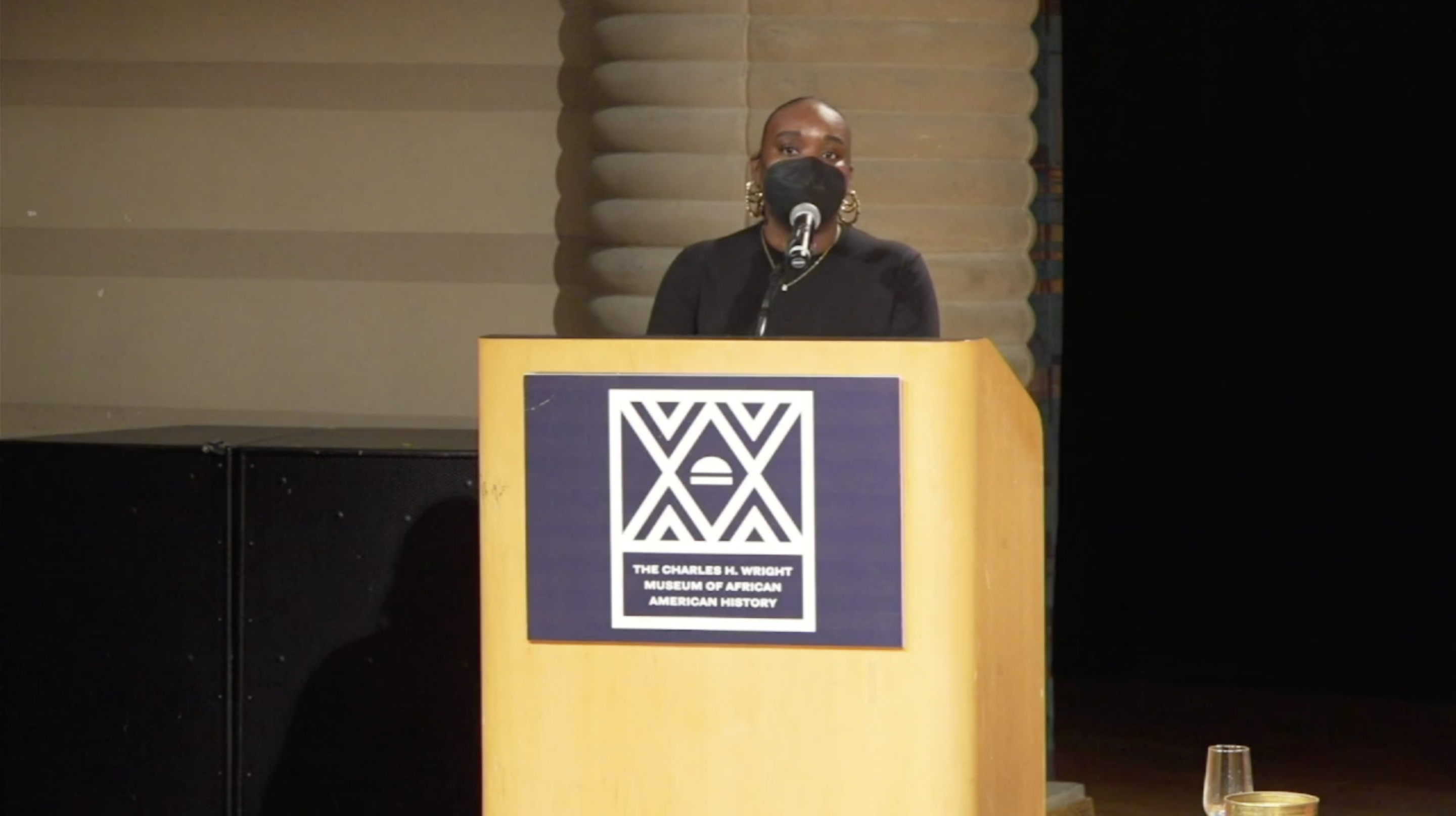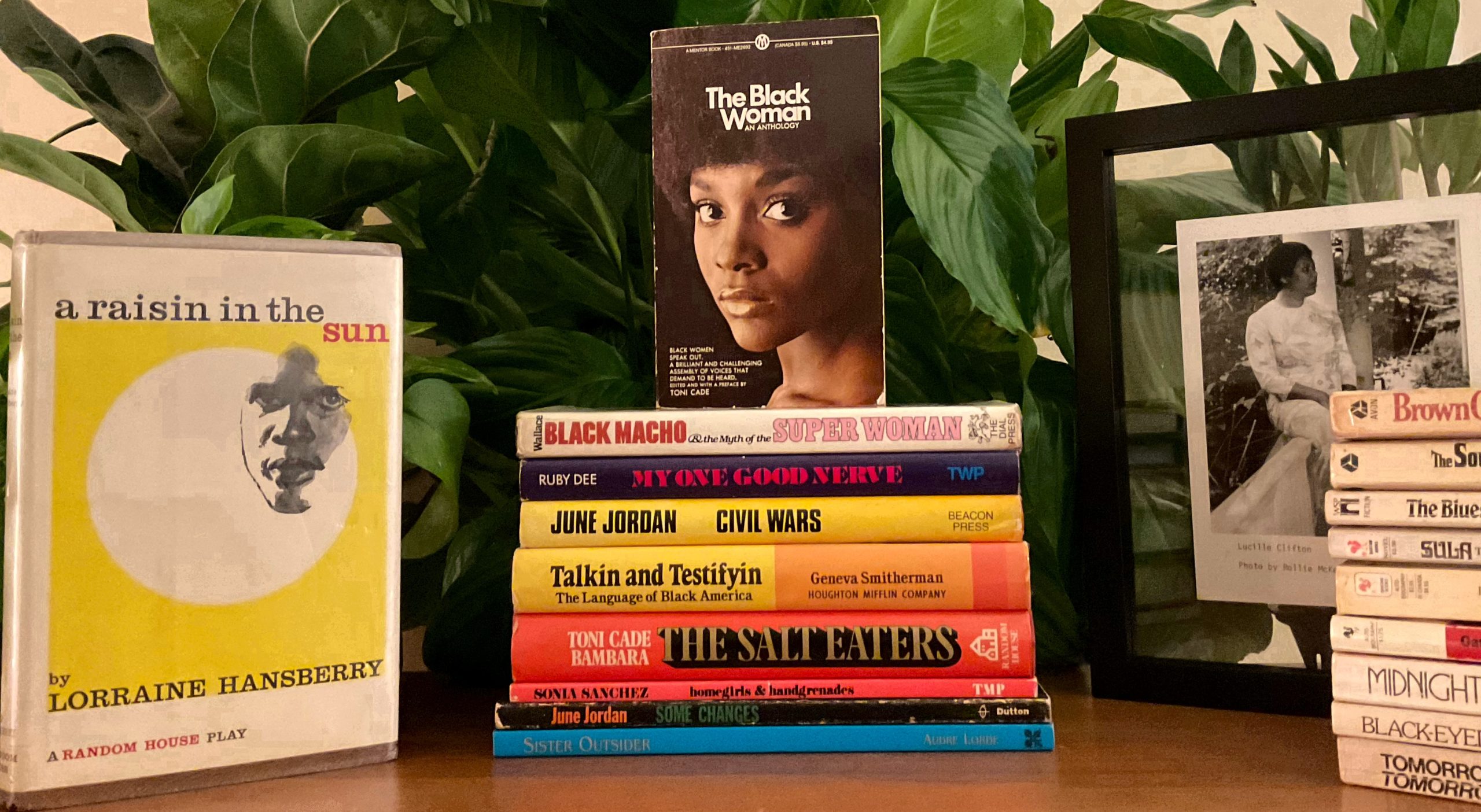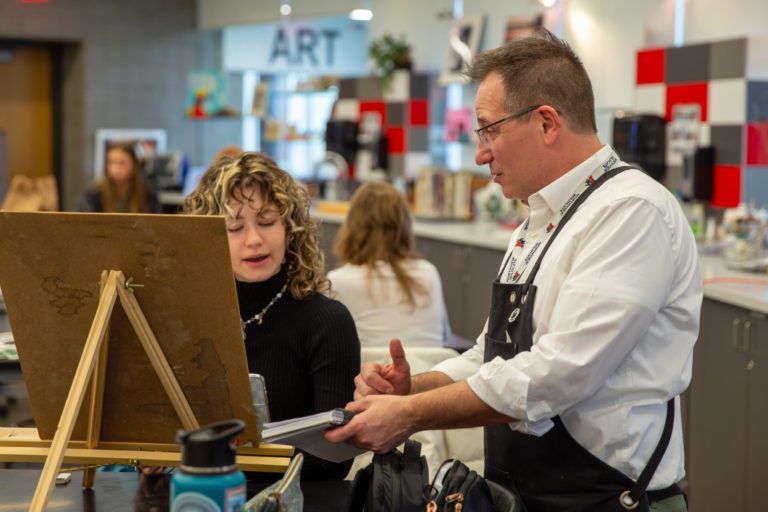Growing up, Camille Jackson set a goal to pursue higher education. Now that she’s close to receiving her bachelor’s degree from Michigan State University, she’s expanded her goals to attend graduate school and to preserve the cultural works that shaped her trajectory as a first-generation college student.
When she graduates from MSU this May, Jackson will conclude one leg of an educational journey that critically examines the human, specifically the Black, experience. Deeply inspired by her Sociology major and her minor in the Department of African American and African Studies (AAAS), Jackson stands equipped with a “being in service to the people” approach, intent on effecting change through organizing and advanced scholarship.

“The professors in the Department of AAAS challenged us to freedom dream, highlighting the various pathways in which we can see those dreams realized,” Jackson said. “They embody Black radical vision very well, which was greatly appreciated and heightened my engagement with the courses, definitely making this a department I am glad to have experienced. The Black freedom discussions are being had with urgency. Their commitment reminds me of one of my favorite poets, Gwendolyn Brooks, who said, ‘Blackness is a going to essences and to unifyings,’ which I enjoy that the AAAS Department embodies through their ideas on how we envision our communities. The professors are love-inspired, which is evident in how they educate with such a high level of care.”
Preserving Culture, Promoting Activism
Growing up in Detroit, Jackson attended University Preparatory Academy starting in middle school and graduated from high school in 2016. After her junior year, she received a close-up look at college via Camp Enterprise, a five-day summer program coordinated by New Detroit and MSU for business-minded students. During her senior year of high school, she participated in the Midnight Golf Program, a 30-week curriculum that mentors Detroit area high schoolers for college and careers.

Jackson received several scholarships to attend MSU, including one from the Midnight Golf Program and the Detroit Promise. She spent her first two years as a Political Science major, then took a gap year before returning to major in Sociology. Inspired by a course in Ebonics through the Center for Integrative Arts and Humanities, Jackson set out to add to her academic credentials with a minor in African American and African Studies from MSU’s College of Arts & Letters.
“I was looking for a way to find community and to reengage some of my favorite Black authors, thinkers, and activists that the courses feature,” Jackson said. “I found the professors in the Department of AAAS to be not just scholars, but cultural workers who understood Blackness through a radical framework that interrogates what freedom looks like for all Black people, not only in the spaces we occupy in the west, but globally.”
I found the professors in the Department of AAAS to be not just scholars, but cultural workers who understood Blackness through a radical framework that interrogates what freedom looks like for all Black people, not only in the spaces we occupy in the west, but globally.
Camille Jackson
While at MSU, Jackson has engaged in community organizing work with the Detroit Chapter of the Malcolm X Grassroots Movement. In 2021, she received a summer fellowship to work on local and national social justice campaigns with other Grassroots chapters. The ongoing campaign advocates for the release of Dr. Mutulu Shakur, a Black freedom fighter held in the Federal Bureau of Prisons. Dr. Shakur, who has been in federal prison since 1986, is a veteran member of the Black Liberation Army as well as a co-Founder and co-Director of the Black Acupuncture Advisory Association of North America (BAAANA) and the Harlem Institute of Acupuncture. Jackson also participates in activities focused on defending human rights and promoting self-determination Detroit Grassroots Chapter’s various works including fundraising, political education, youth programming, mutual aid, and more.

“Camille is destined for greatness and her genius is fully recognized in AAAS. Her thoughtful engagement with Black arts, culture, and liberation motivates her coursework,” said Ruth Nicole Brown, Professor and Inaugural Chair of the AAAS Department. “Camille’s archival research and curatorial practice coupled with her community activism is exemplary student leadership.”
As Jackson looks ahead to the future, she is working with her mentors and AAAS advisors, Dr. Chamara Kwakye and Dr. Yvonne Morris, to select a graduate program. She is leaning toward library and information science programs that build on her interests in Black studies and, in particular, the preservation and amplification of rare Black literature.
Camille is destined for greatness and her genius is fully recognized in AAAS. Her thoughtful engagement with Black arts, culture, and liberation motivates her coursework.
Ruth Nicole Brown, Professor and Inaugural Chair of the AAAS Department
“I’m thinking of the importance that Black women’s literature has played in my life,” she said. “Those authors, artists, and thinkers have given me the words to express myself, find healing, and redirect my emotions into creating material change.”
Jackson aspires to preserve and help thrust works of Black women and other Black writers into the general consciousness. Her goal, she says, is to break down the gates that keep particular literature and thought from the mainstream as institutions have the tendency to gatekeep critical works and information from the masses.
“Studying with the scholars, cultural workers, and activists in the Department of AAAS has shown me a great deal,” Jackson said. “My goal is to help preserve the access and availability of works that have shaped my world view.”


